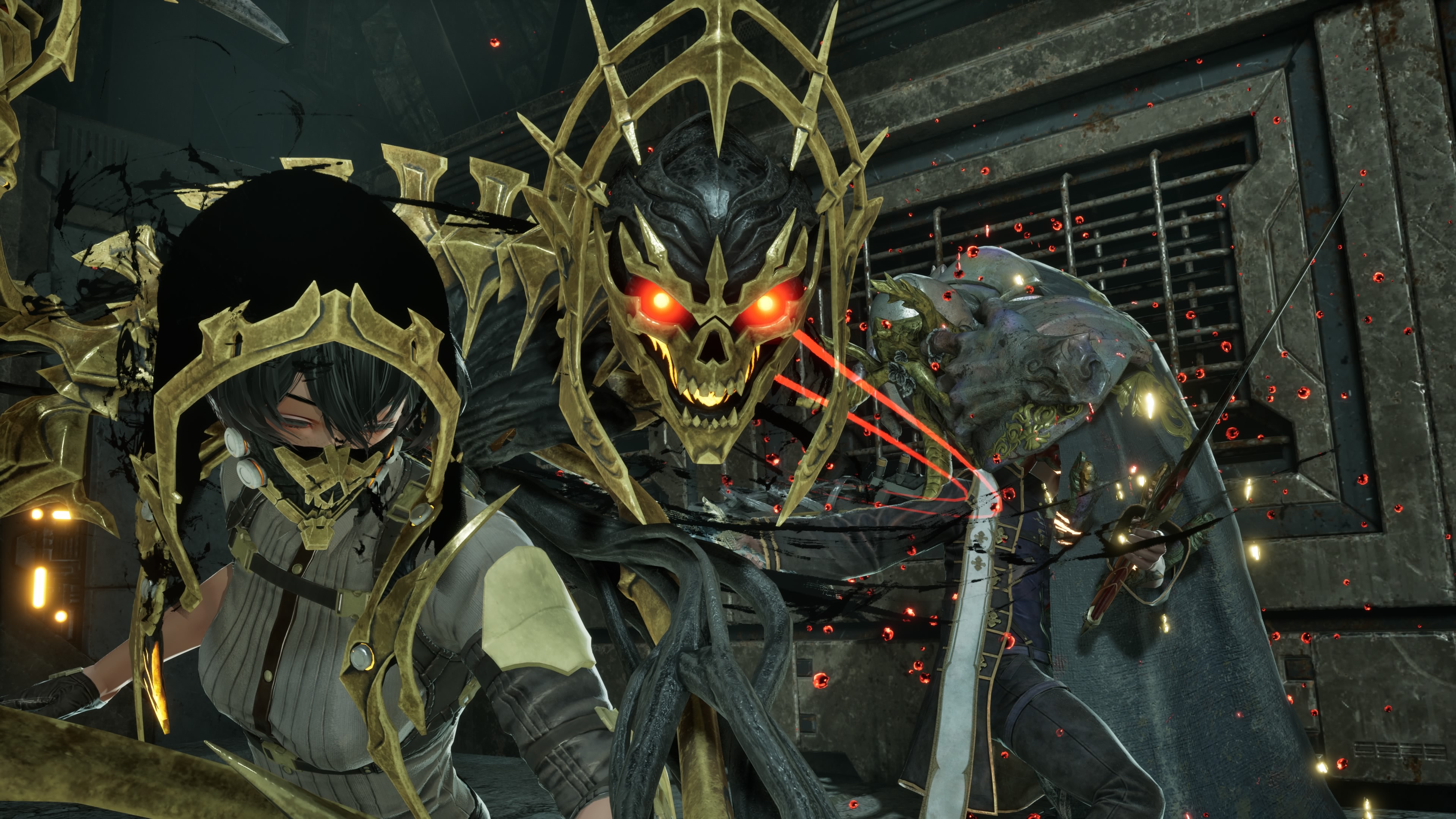The New York Times thinks generative AI is like Pac-Man ghosts and also the Matrix, because nobody gets to be normal about this stuff anymore
Am I being baited? I think I'm being baited.

The New York Times is being hazed by game dev social media over what I can only describe as one of the most naive articles about AI I've ever seen. The pointing and laughing is happening on BlueSky, among other places, over a paragraph that claims generative AI is being embraced by the videogame industry, which sure, makes sense, because we were giving those funny Pac-Man ghosts AIs in the past. And isn't that the same thing?
No. No it's not—though being wary of simply taking a lone paragraph out of context, I went ahead and read the full thing. It does not get much better. Get out your bingo cards.
The piece immerses us into a nice balmy pot of misunderstanding soup with the sentence "It sounds like a thought experiment conjured by René Descartes for the 21st century." Hoo boy.
Its writer, Zachary Small, then goes on to reference this video that went viral a couple of years ago, wherein a YouTuber gets proportionately freaked out as generative AI NPCs start getting a bit existential in a tech demo by Replica. I'd link to Replica's website, but the company doesn't exist anymore which, to be fair, the article does acknowledge several paragraphs down.
The NYT frames this as some kind of brush with the machine god: "Everything was fake, a player told them through a microphone, and they were simply lines of code meant to embellish a virtual world. Empowered by generative artificial intelligence like ChatGPT, the characters responded in panicked disbelief. 'What does that mean,' said one woman in a gray sweater. 'Am I real or not?'"
This sort of open-mouthed astonishment might've been apropos three years ago, when all of this tech was still relatively new, but AI doesn't actually think or understand anything. It didn't then, and it doesn't now. Here's a solid breakdown by MIT from the time period, which explains:
"In this huge corpus of text, words and sentences appear in sequences with certain dependencies. This recurrence helps the model understand how to cut text into statistical chunks that have some predictability. It learns the patterns of these blocks of text and uses this knowledge to propose what might come next." In other words, what we might call an 'educated guess'.
Keep up to date with the most important stories and the best deals, as picked by the PC Gamer team.
Replica's AI was trained on text written by people, and people have written about machines becoming self-aware before, which is why the NPCs spat out lines about being self-aware when they were told they were machines. This is like saying Google is sapient because it fed me a link to Isaac Asimov's I, Robot when I searched for it: A program taking educated guesses does not a singularity make.
To be clear, generative AI has been having a major impact on videogames—both in the fact that there are legitimate use-cases being found, and in the fact that excitable CEOs are getting ahead of themselves and mandating employees use it, which is totally a normal thing you do with a technology you're naturally finding use cases for.
The paragraph that active developers are dunking on, however, is this doozy:
"Most experts acknowledge that a takeover by artificial intelligence is coming for the video game industry within the next five years, and executives have already started preparing to restructure their companies in anticipation. After all, it was one of the first sectors to deploy AI programming in the 1980s, with the four ghosts who chase Pac-Man each responding differently to the player’s real-time movements."

I'm just gonna rattle off the problems with this statement one-by-one. First up, which experts? Sure, Nvidia's CEO says AI is coming for everybody's jobs, but also, it's sort of his job to sell AI technology. You know who else said we'd all have to adapt to AI? Netflix's former VP of GenAI for Games, who stopped working there four months later.
CEO of Larian Studios Swen Vincke (note: someone who actually makes games) isn't nearly as convinced—while the developer does use generative AI for the early, early stages of prototyping, basically anything thereafter is made by hand. CD Projekt is also steering clear, because the quagmire of legal ownership just isn't worth it.
Some executives have done some restructuring that may or may not be related to AI—I certainly don't doubt that AI plays a part, but widespread layoffs and studio closures are also down to, say, buying a company for $68 billion, or flubbing a $2 billion investment deal. You know. CEO things.
And then there's the coup de grâce on this lump of coal—the comparison to the ghosts in Pac-Man, as if that has anything to do with anything. No, the programming of Pac-Man's ghosts has nothing to do with generative AI or deep learning models, a completely different technology. Tōru Iwatani, a person, gave them their distinct 'personalities'.
"We're gonna be making our games differently, but to say that it'll replace the craftsmanship? I think we're very far from it."
Larian CEO Swen Vincke (GameSpot interview, April 2025)
To be clear, this is about as relevant as saying the videogame industry's adopting AI because Crazy Taxi had a pointing arrow in it that leads to your next objective—it's a loose association by someone who saw the word "AI" twice and assumed those things must be related.
I could continue ribbing on this thing. For example, there's a one-two punch where Small references fretting over gen AI npcs "dying" when a game gets shut down as developers "forgoing those moral questions in their presentations to studio executives," then proceeds to talk about how Sony made an AI Aloy without also noting that the character's voice actor, Ashley Burch, found the whole thing repulsive.
It also happens to suggest that using "AI programs to complete repetitive tasks like placing barrels throughout a virtual village" is novel, when procedural generations have existed for years (and in fact might be a more apt comparison, if we're going to draw a line from point A to point B).
But I think what's really telling is how noncommittal the answers Small receives are. Microsoft's response was the most gung-ho, though it still clarified that "Game creators will always be the center of our overall AI efforts". Nintendo pointed Small in the direction of its prior statements, wherein the company said "would rather go in a different direction".
Even the experts at companies Small quotes are downright tepid, often pointing towards cost and realistic expectations for the things he says are just five years around the corner.
Look—generative AI's gonna have, and already has had, an impact on game development, and will be used inside of it. But I would implore both the writers at the NYT, and just about anyone else, to apply a little bit of skepticism before you believe claims that these models are forming relationships, inventing art styles, or becoming self-aware. That's not how this works. That's not how any of this works.

1. Best overall: Havn HS 420
2. Best budget: Phanteks G400A
3. Best midrange: Hyte Y40
4. Best budget compact: Thermaltake S100 TG Snow Edition
5. Best high-end: NZXT H9 Flow RGB+
6. Best Mini-ITX: Fractal Design Terra
7. Best Micro-ATX: NZXT H3 Flow
8. Best full-tower: NZXT H7 Flow
9. Best dual-chamber: Hyte Y70 Touch Infinite
10. Best fish tank: Lian Li O11 Vision Compact
11. Best looking: Phanteks Evolv X2
12. Best for beginners: Be Quiet! Shadow Base 800 FX

Harvey's history with games started when he first begged his parents for a World of Warcraft subscription aged 12, though he's since been cursed with Final Fantasy 14-brain and a huge crush on G'raha Tia. He made his start as a freelancer, writing for websites like Techradar, The Escapist, Dicebreaker, The Gamer, Into the Spine—and of course, PC Gamer. He'll sink his teeth into anything that looks interesting, though he has a soft spot for RPGs, soulslikes, roguelikes, deckbuilders, MMOs, and weird indie titles. He also plays a shelf load of TTRPGs in his offline time. Don't ask him what his favourite system is, he has too many.
You must confirm your public display name before commenting
Please logout and then login again, you will then be prompted to enter your display name.

